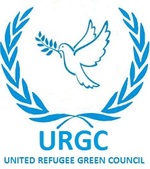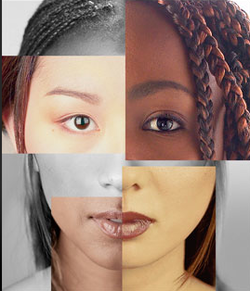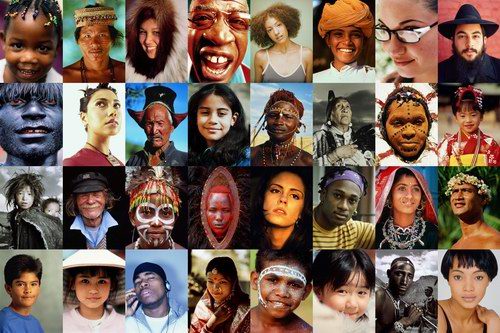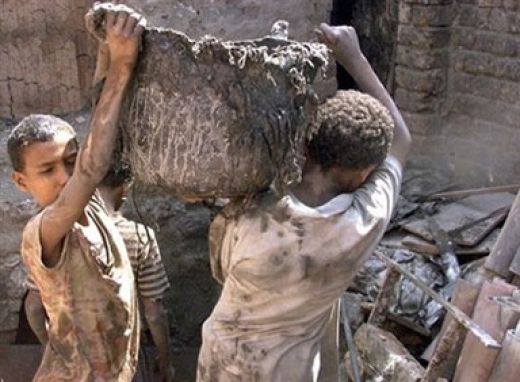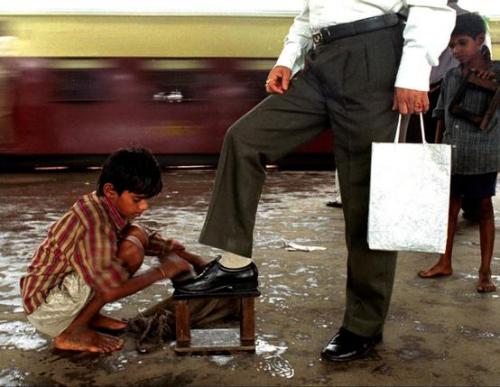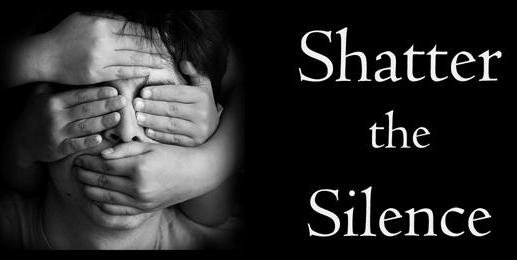|
|
|
International human rights law
The formal expression of inherent human rights is through international human rights law. A series of international human rights treaties and other instruments have emerged since 1945 conferring legal form on inherent human rights. The creation of the United Nations provided an ideal forum for the development and adoption of international human rights instruments. Other instruments have been adopted at a regional level reflecting the particular human rights concerns of the region. Most States have also adopted constitutions and other laws which formally protect basic human rights. Often the language used by States is drawn directly from the international human rights instruments.
International human rights law consists mainly of treaties and custom as well as, inter alia, declarations, guidelines and principles.
A treaty is an agreement by States to be bound by particular rules. International treaties have different designations such as covenants, charters, protocols, conventions, accords and agreements. A treaty is legally binding on those States which have consented to be bound by the provisions of the treaty – in other words are party to the treaty.
A State can become a party to a treaty by ratification, accession or succession. Ratification is a State’s formal expression of consent to be bound by a treaty. Only a State that has previously signed the treaty (during the period when the treaty was open for signature) can ratify it. Ratification consists of two procedural acts: on the domestic level, it requires approval by the appropriate constitutional organ (usually the head of State or parliament). On the international level, pursuant to the relevant provision of the treaty in question, the instrument of ratification shall be formally transmitted to the depositary which may be a State or an international organization such as the United Nations.
Accession entails consent to be bound by a State that has not previously signed the instrument. States ratify treaties both before and after the treaty has entered into force. The same applies to accession.
A State may also become party to a treaty by succession, which takes place by virtue of a specific treaty provision or by declaration. Most treaties are not self-executing. In some States treaties are superior to domestic law, whereas in other States treaties are given constitutional status, and in yet others only certain provisions of a treaty are incorporated in domestic law.
A State may, in ratifying a treaty, enter reservations to that treaty, indicating that, while it consents to be bound by most of the provisions, it does not agree to be bound by certain specific provisions. However, a reservation may not defeat the object and purpose of the treaty. Further, even if a State is not a party to a treaty or if it has entered reservations thereto, that State may still be bound by those treaty provisions which have become part of customary international law or constitute peremptory rules of international law, such as the prohibition against torture.
The formal expression of inherent human rights is through international human rights law. A series of international human rights treaties and other instruments have emerged since 1945 conferring legal form on inherent human rights. The creation of the United Nations provided an ideal forum for the development and adoption of international human rights instruments. Other instruments have been adopted at a regional level reflecting the particular human rights concerns of the region. Most States have also adopted constitutions and other laws which formally protect basic human rights. Often the language used by States is drawn directly from the international human rights instruments.
International human rights law consists mainly of treaties and custom as well as, inter alia, declarations, guidelines and principles.
A treaty is an agreement by States to be bound by particular rules. International treaties have different designations such as covenants, charters, protocols, conventions, accords and agreements. A treaty is legally binding on those States which have consented to be bound by the provisions of the treaty – in other words are party to the treaty.
A State can become a party to a treaty by ratification, accession or succession. Ratification is a State’s formal expression of consent to be bound by a treaty. Only a State that has previously signed the treaty (during the period when the treaty was open for signature) can ratify it. Ratification consists of two procedural acts: on the domestic level, it requires approval by the appropriate constitutional organ (usually the head of State or parliament). On the international level, pursuant to the relevant provision of the treaty in question, the instrument of ratification shall be formally transmitted to the depositary which may be a State or an international organization such as the United Nations.
Accession entails consent to be bound by a State that has not previously signed the instrument. States ratify treaties both before and after the treaty has entered into force. The same applies to accession.
A State may also become party to a treaty by succession, which takes place by virtue of a specific treaty provision or by declaration. Most treaties are not self-executing. In some States treaties are superior to domestic law, whereas in other States treaties are given constitutional status, and in yet others only certain provisions of a treaty are incorporated in domestic law.
A State may, in ratifying a treaty, enter reservations to that treaty, indicating that, while it consents to be bound by most of the provisions, it does not agree to be bound by certain specific provisions. However, a reservation may not defeat the object and purpose of the treaty. Further, even if a State is not a party to a treaty or if it has entered reservations thereto, that State may still be bound by those treaty provisions which have become part of customary international law or constitute peremptory rules of international law, such as the prohibition against torture.
WE ARE ALL CREATED EQUAL WITH THE SAME HUMAN RIGHTS
Customary international law (or simply “custom”) is the term used to describe a general and consistent practice followed by States deriving from a sense of legal obligation. Thus, for example, while the Universal Declaration of Human Rights is not in itself a binding treaty, some of its provisions have the character of customary international law.
Declarations, resolutions etc. adopted by United Nations organsGeneral norms of international law – principles and practices that most States would agree on – are often stated in declarations, proclamations, standard rules, guidelines, recommendations and principles. While no binding legal effect on States ensues, they nevertheless represent a broad consensus on the part of the international community and, therefore, have a strong and undeniable moral force in terms of the practice of States in their conduct of international relations. The value of such instruments rests on their recognition and acceptance by a large number of States, and, even without binding legal effect, they may be seen as declaratory of broadly accepted principles within the international community.
The UN Declaration on the Rights of Indigenous Peoples has received backing from the United States in 2010, the last of four UN Member States that had opposed it. By adopting the Declaration, States have committed to recognizing indigenous peoples rights under international law, with the right to be respected as distinct peoples and the right to determine their own development according to their culture, priorities, and customary laws.
ore Human Rights Instruments
- International Convention on the Elimination of All Forms of Racial Discrimination (ICERD).Ratification: 174 countries.
- International Covenant on Civil and Political Rights (ICCPR). Ratification: 167 countries.
- International Covenant on Economic, Social and Cultural Rights (ICESCR). Ratification: 160 countries.
- Convention on the Elimination of All Forms of Discrimination against Women (CEDAW). Ratification: 186 countries.
- Convention against Torture and Other Cruel, Inhuman or Degrading Treatment or Punishment (CAT). Ratification: 147 countries.
- Convention on the Rights of the Child (CRC). Ratification: 193 countries.
- International Convention on the Protection of the Rights of All Migrant Workers and Their Families (ICRMW). Ratification: 44 countries.
- Convention for the Protection of All Persons from Enforced Disappearance (ICPPED). Ratification: 21 countries.
- Convention on the Rights of Persons with Disabilities (CRPD). Ratification: 96 countries.
|
Child labour is a violation of fundamental human rights and has been shown to hinder children's development, potentially leading to lifelong physical or psychological damage. Evidence points to a strong link between household poverty and child labour, and child labour perpetuates poverty across generations by keeping children of the poor out of school and limiting their prospects for upward social mobility. This lowering of human capital has been linked to slow economic growth and social development. Studies show that eliminating child labour in transition and developing economies could generate economic benefits nearly seven times greater than the costs, mostly associated with investment in better schooling and social services.
Millions of children around the world are trapped in child labour, depriving them of their childhood, their health and education, and condemning them to a life of poverty and want. Of course, there is work that children do to help their families in ways that are neither harmful nor exploitative. But many children are stuck in unacceptable work for children – a serious violation of their rights. Recent global estimates based on data of UNICEF, the ILO and the World Bank indicate that 168 million children aged 5 to 17 are engaged in child labour. Some 150 million children most below the age of 14 forced to work and deprived from adequate education and basic human rights. In addition, millions of children suffer in the other worst forms of child labour, including slavery and slavery-like practices such as forced and bonded labour and child soldiering, sexual exploitation, or are used by adults in illicit activities, including drug trafficking & child prostitution. |
In the recent conflicts in Syria child exploitation and abuse is at its highest
Many Syrian displaced families are facing the torment of having to either sell their daughters into prostitution or arrange their marriages in exchange of a dowry or other commodity or to simply protect them from rape or harm.
Such child marriages have been known to take place as young as 9 years of age and more commonly 12-15 years of age to men on average 10 years older and in many cases up to four times their ages. This assures them that as a wife, their daughter will be better respected and protected.
This has left many children who have been forced into child marriages vulnerable to health problems, domestic abuse and poverty. Such child brides also have more limited economic opportunities due to loss of schooling and can get trapped in a vicious cycle of poverty, abuse, health problems and often leads to these children having children which most often becomes complicated and young girls have lost their lives during giving birth.
The physical effects of child marriage could sometimes be fatal. "The consequences for girls' health, of engaging in sexual activity while their bodies are still developing, are devastating. Girls under 15 are five times more likely to die in childbirth than fully grown women."
It has become apparent that such children are most often forced into marriage for their own protection, whereby parents feel they have no other choice. It is the duty of UN agencies to protect such vulnerable displaced children, whether they are with their parents or not is irrelevant, if a child is in danger the parent and child should have the option to seek assistance from the UN agencies, but because the UN agencies do not have the infrastructure to deal with such matters, children are forced and condemned to abuse and possibly death.
The UN requires a program whereby children can be removed from vulnerable familial situations and placed in a safe and protected environment whereby the child is protected 24/7 of which the parents would greatly welcome.
Sexual crime and drug trafficking is also at its highest among Syrian refugees, whereby children are sold for sex or used for drug trafficking.
A young girl who may have been raped or abused is considered as of no value and will be exploited even further for sex trafficking, forcing young female children into prostitution in exchange for money or commodities and young boys in to drug trafficking.
The other very difficult issue regarding refugee children are the children who have lost their parents or separated from their parents and taken-in by other Syrian families and expressed to all, as their own child or as a relative, such children have been used by the guardian to sell as child bride for a dowry or be used in child prostitution or drug trafficking.
Other common reasons for female children sold for sex or as child brides, is debt, where a parent borrows money and cannot repay the debt and the child is taken as payment either for sex or as a bride.
It is no doubt that Syrian female children and teenage children are also kidnapped, raped and either returned or sold as sex slaves.
The foreign bombardment of Saudi, Qatar, Jordanian and more recently Turkish men are now focusing on refugee families seeking child brides and offering a few hundred dollars for the child is very common, however it is not what it seems, such child marriages are short lived, such men take the child as a bride and use them as sex slaves for themselves or sell the child to the highest bidder who is looking for a young virgin at a high price. Once the young girls have no further use they are either dropped of back to their families often in bad abused physical and psychological health or they are never heard of again. In other cases they are taken as slaves and it is not uncommon that multiple marriage deals are done the same day where a single buyer of the child brides can drive away from 1 to 2-3-4-5-6 children brides the same day to be used in such ways. The deal is done as quick as buying cattle from a market place.
Child marriages are often a legal approval/cover to use young girls as sex slaves, slavery is a booming business
So, what does the UN do about it? the reality is that the UN is often not aware of this whilst it is going on and the taboo or shame of what is going on is kept very quite so quite often UN agencies will not know unless it is reported to them, however, when the UN agency is aware the UN applies full force to protect children, but unfortunately the UN cannot be monitoring every child especially in an open span area of a refugee camp 24 hours a day 7 days a week.
It is without doubt that the UN agencies require more funding so that they can introduce much needed support systems to help them better protect vulnerable refugee children. URGC believes that for the UN to be able to offer 100% protection and monitor vulnerable children 24 hours a day 7 days a week efficiently and with fewer resources and economically, a child would need to be in a UNNA HIOS facility where it will receive 100% protection and development support systems and where UN Agency workers can conduct their commendable humanitarian and voluntary work in a safe and secure environment at a fuller capacity.
Such children need protection and the UN is presently limited as to how to apply such wide spread and most often hidden issues, the UN requires more funding and more awareness and support from the international community in the importance of protecting the human rights of children and to be better equipped to apply a program that can offer a protective holistic facility to young children that protects them 24 hours a day 7 days a week and the only program proposed that can meet this, is the UNNA which the UN Agencies need to seriously consider and apply.
We must understand that in many cases when people loose everything and become displaced/refugees, they have nothing more than the clothes they are wearing and what ever small amount of belongings they are able to carry with them, this creates situation of zero choices and without choices people feel they must accept their fate which is often judged in accordance to their current circumstances and when hope fades and often is void from their feelings and believes, desperation sets in to the degree that the only thing that is believed that can be offered to survive or increase ones life chances or the life chances of those within a family unit or in hope of changing their circumstances is oneself or a member of the family and such members of the family that has any trade value are the female children. The UN Agencies and any other agency/support group has very little control within the actions of family units and most often no no pre-knowledge of families selling their female children as child brides/sex slaves, which makes matters very difficult for support UN agencies to be aware and offer support systems.
What the UN Agencies can do is give a choice to refugee families, a choice that replaces that of selling their child as a child bride/sex slave, a choice that will possible save a child's life and that choice is to place the child in a protective holistic environment which we believe can only be me by a UNNA HIOS facility.
Such child marriages have been known to take place as young as 9 years of age and more commonly 12-15 years of age to men on average 10 years older and in many cases up to four times their ages. This assures them that as a wife, their daughter will be better respected and protected.
This has left many children who have been forced into child marriages vulnerable to health problems, domestic abuse and poverty. Such child brides also have more limited economic opportunities due to loss of schooling and can get trapped in a vicious cycle of poverty, abuse, health problems and often leads to these children having children which most often becomes complicated and young girls have lost their lives during giving birth.
The physical effects of child marriage could sometimes be fatal. "The consequences for girls' health, of engaging in sexual activity while their bodies are still developing, are devastating. Girls under 15 are five times more likely to die in childbirth than fully grown women."
It has become apparent that such children are most often forced into marriage for their own protection, whereby parents feel they have no other choice. It is the duty of UN agencies to protect such vulnerable displaced children, whether they are with their parents or not is irrelevant, if a child is in danger the parent and child should have the option to seek assistance from the UN agencies, but because the UN agencies do not have the infrastructure to deal with such matters, children are forced and condemned to abuse and possibly death.
The UN requires a program whereby children can be removed from vulnerable familial situations and placed in a safe and protected environment whereby the child is protected 24/7 of which the parents would greatly welcome.
Sexual crime and drug trafficking is also at its highest among Syrian refugees, whereby children are sold for sex or used for drug trafficking.
A young girl who may have been raped or abused is considered as of no value and will be exploited even further for sex trafficking, forcing young female children into prostitution in exchange for money or commodities and young boys in to drug trafficking.
The other very difficult issue regarding refugee children are the children who have lost their parents or separated from their parents and taken-in by other Syrian families and expressed to all, as their own child or as a relative, such children have been used by the guardian to sell as child bride for a dowry or be used in child prostitution or drug trafficking.
Other common reasons for female children sold for sex or as child brides, is debt, where a parent borrows money and cannot repay the debt and the child is taken as payment either for sex or as a bride.
It is no doubt that Syrian female children and teenage children are also kidnapped, raped and either returned or sold as sex slaves.
The foreign bombardment of Saudi, Qatar, Jordanian and more recently Turkish men are now focusing on refugee families seeking child brides and offering a few hundred dollars for the child is very common, however it is not what it seems, such child marriages are short lived, such men take the child as a bride and use them as sex slaves for themselves or sell the child to the highest bidder who is looking for a young virgin at a high price. Once the young girls have no further use they are either dropped of back to their families often in bad abused physical and psychological health or they are never heard of again. In other cases they are taken as slaves and it is not uncommon that multiple marriage deals are done the same day where a single buyer of the child brides can drive away from 1 to 2-3-4-5-6 children brides the same day to be used in such ways. The deal is done as quick as buying cattle from a market place.
Child marriages are often a legal approval/cover to use young girls as sex slaves, slavery is a booming business
So, what does the UN do about it? the reality is that the UN is often not aware of this whilst it is going on and the taboo or shame of what is going on is kept very quite so quite often UN agencies will not know unless it is reported to them, however, when the UN agency is aware the UN applies full force to protect children, but unfortunately the UN cannot be monitoring every child especially in an open span area of a refugee camp 24 hours a day 7 days a week.
It is without doubt that the UN agencies require more funding so that they can introduce much needed support systems to help them better protect vulnerable refugee children. URGC believes that for the UN to be able to offer 100% protection and monitor vulnerable children 24 hours a day 7 days a week efficiently and with fewer resources and economically, a child would need to be in a UNNA HIOS facility where it will receive 100% protection and development support systems and where UN Agency workers can conduct their commendable humanitarian and voluntary work in a safe and secure environment at a fuller capacity.
Such children need protection and the UN is presently limited as to how to apply such wide spread and most often hidden issues, the UN requires more funding and more awareness and support from the international community in the importance of protecting the human rights of children and to be better equipped to apply a program that can offer a protective holistic facility to young children that protects them 24 hours a day 7 days a week and the only program proposed that can meet this, is the UNNA which the UN Agencies need to seriously consider and apply.
We must understand that in many cases when people loose everything and become displaced/refugees, they have nothing more than the clothes they are wearing and what ever small amount of belongings they are able to carry with them, this creates situation of zero choices and without choices people feel they must accept their fate which is often judged in accordance to their current circumstances and when hope fades and often is void from their feelings and believes, desperation sets in to the degree that the only thing that is believed that can be offered to survive or increase ones life chances or the life chances of those within a family unit or in hope of changing their circumstances is oneself or a member of the family and such members of the family that has any trade value are the female children. The UN Agencies and any other agency/support group has very little control within the actions of family units and most often no no pre-knowledge of families selling their female children as child brides/sex slaves, which makes matters very difficult for support UN agencies to be aware and offer support systems.
What the UN Agencies can do is give a choice to refugee families, a choice that replaces that of selling their child as a child bride/sex slave, a choice that will possible save a child's life and that choice is to place the child in a protective holistic environment which we believe can only be me by a UNNA HIOS facility.
SEX SLAVERY IS THE GREATEST HUMAN RIGHTS VIOLATION
UNITED NATIONS REPORTS THAT SINCE AUGUST 2014 OVER 25,000 SYRIAN FEMALES FROM YOUNG CHILDREN TO ADOLESCENCES & WOMEN HAVE BEEN KIDNAPPED & USED AS WELL AS SOLD AS SEX SLAVES
It is estimated that over 100,000 female children are abused, sold as child brides or as sex slaves
THE NEED TO PROTECT VULNERABLE CHILDREN IN SECURED UNNA HIOS UNITS HAS NEVER BEEN GREATER
UNITED NATIONS REPORTS THAT SINCE AUGUST 2014 OVER 25,000 SYRIAN FEMALES FROM YOUNG CHILDREN TO ADOLESCENCES & WOMEN HAVE BEEN KIDNAPPED & USED AS WELL AS SOLD AS SEX SLAVES
It is estimated that over 100,000 female children are abused, sold as child brides or as sex slaves
THE NEED TO PROTECT VULNERABLE CHILDREN IN SECURED UNNA HIOS UNITS HAS NEVER BEEN GREATER
UNIVERSAL DECELERATION OF HUMAN RIGHTS
Whereas recognition of the inherent dignity and of the equal and inalienable rights of all members of the human family is the foundation of freedom, justice and peace in the world,
Whereas disregard and contempt for human rights have resulted in barbarous acts which have outraged the conscience of mankind, and the advent of a world in which human beings shall enjoy freedom of speech and belief and freedom from fear and want has been proclaimed as the highest aspiration of the common people,
Whereas it is essential, if man is not to be compelled to have recourse, as a last resort, to rebellion against tyranny and oppression, that human rights should be protected by the rule of law,
Whereas it is essential to promote the development of friendly relations between nations,
Whereas the peoples of the United Nations have in the Charter reaffirmed their faith in fundamental human rights, in the dignity and worth of the human person and in the equal rights of men and women and have determined to promote social progress and better standards of life in larger freedom,
Whereas Member States have pledged themselves to achieve, in co-operation with the United Nations, the promotion of universal respect for and observance of human rights and fundamental freedoms,
Whereas a common understanding of these rights and freedoms is of the greatest importance for the full realization of this pledge,
Now, Therefore THE GENERAL ASSEMBLY proclaims THIS UNIVERSAL DECLARATION OF HUMAN RIGHTS as a common standard of achievement for all peoples and all nations, to the end that every individual and every organ of society, keeping this Declaration constantly in mind, shall strive by teaching and education to promote respect for these rights and freedoms and by progressive measures, national and international, to secure their universal and effective recognition and observance, both among the peoples of Member States themselves and among the peoples of territories under their jurisdiction.
Article 1.
Article 2.
Article 3.
Article 4.
Article 5.
Article 6.
Article 7.
Article 8.
Article 9.
Article 10.
Article 11.
Article 12.
Article 13.
Article 14.
Article 15.
Article 16.
Article 17.
Article 18.
Article 19.
Article 20.
Article 21.
Article 22.
Article 23.
Article 24.
Article 25.
Article 26.
Article 27.
Article 28.
Article 29.
Article 30.
Whereas disregard and contempt for human rights have resulted in barbarous acts which have outraged the conscience of mankind, and the advent of a world in which human beings shall enjoy freedom of speech and belief and freedom from fear and want has been proclaimed as the highest aspiration of the common people,
Whereas it is essential, if man is not to be compelled to have recourse, as a last resort, to rebellion against tyranny and oppression, that human rights should be protected by the rule of law,
Whereas it is essential to promote the development of friendly relations between nations,
Whereas the peoples of the United Nations have in the Charter reaffirmed their faith in fundamental human rights, in the dignity and worth of the human person and in the equal rights of men and women and have determined to promote social progress and better standards of life in larger freedom,
Whereas Member States have pledged themselves to achieve, in co-operation with the United Nations, the promotion of universal respect for and observance of human rights and fundamental freedoms,
Whereas a common understanding of these rights and freedoms is of the greatest importance for the full realization of this pledge,
Now, Therefore THE GENERAL ASSEMBLY proclaims THIS UNIVERSAL DECLARATION OF HUMAN RIGHTS as a common standard of achievement for all peoples and all nations, to the end that every individual and every organ of society, keeping this Declaration constantly in mind, shall strive by teaching and education to promote respect for these rights and freedoms and by progressive measures, national and international, to secure their universal and effective recognition and observance, both among the peoples of Member States themselves and among the peoples of territories under their jurisdiction.
Article 1.
- All human beings are born free and equal in dignity and rights. They are endowed with reason and conscience and should act towards one another in a spirit of brotherhood.
Article 2.
- Everyone is entitled to all the rights and freedoms set forth in this Declaration, without distinction of any kind, such as race, colour, sex, language, religion, political or other opinion, national or social origin, property, birth or other status. Furthermore, no distinction shall be made on the basis of the political, jurisdictional or international status of the country or territory to which a person belongs, whether it be independent, trust, non-self-governing or under any other limitation of sovereignty.
Article 3.
- Everyone has the right to life, liberty and security of person.
Article 4.
- No one shall be held in slavery or servitude; slavery and the slave trade shall be prohibited in all their forms.
Article 5.
- No one shall be subjected to torture or to cruel, inhuman or degrading treatment or punishment.
Article 6.
- Everyone has the right to recognition everywhere as a person before the law.
Article 7.
- All are equal before the law and are entitled without any discrimination to equal protection of the law. All are entitled to equal protection against any discrimination in violation of this Declaration and against any incitement to such discrimination.
Article 8.
- Everyone has the right to an effective remedy by the competent national tribunals for acts violating the fundamental rights granted him by the constitution or by law.
Article 9.
- No one shall be subjected to arbitrary arrest, detention or exile.
Article 10.
- Everyone is entitled in full equality to a fair and public hearing by an independent and impartial tribunal, in the determination of his rights and obligations and of any criminal charge against him.
Article 11.
- (1) Everyone charged with a penal offence has the right to be presumed innocent until proved guilty according to law in a public trial at which he has had all the guarantees necessary for his defence.
- (2) No one shall be held guilty of any penal offence on account of any act or omission which did not constitute a penal offence, under national or international law, at the time when it was committed. Nor shall a heavier penalty be imposed than the one that was applicable at the time the penal offence was committed.
Article 12.
- No one shall be subjected to arbitrary interference with his privacy, family, home or correspondence, nor to attacks upon his honour and reputation. Everyone has the right to the protection of the law against such interference or attacks.
Article 13.
- (1) Everyone has the right to freedom of movement and residence within the borders of each state.
- (2) Everyone has the right to leave any country, including his own, and to return to his country.
Article 14.
- (1) Everyone has the right to seek and to enjoy in other countries asylum from persecution.
- (2) This right may not be invoked in the case of prosecutions genuinely arising from non-political crimes or from acts contrary to the purposes and principles of the United Nations.
Article 15.
- (1) Everyone has the right to a nationality.
- (2) No one shall be arbitrarily deprived of his nationality nor denied the right to change his nationality.
Article 16.
- (1) Men and women of full age, without any limitation due to race, nationality or religion, have the right to marry and to found a family. They are entitled to equal rights as to marriage, during marriage and at its dissolution.
- (2) Marriage shall be entered into only with the free and full consent of the intending spouses.
- (3) The family is the natural and fundamental group unit of society and is entitled to protection by society and the State.
Article 17.
- (1) Everyone has the right to own property alone as well as in association with others.
- (2) No one shall be arbitrarily deprived of his property.
Article 18.
- Everyone has the right to freedom of thought, conscience and religion; this right includes freedom to change his religion or belief, and freedom, either alone or in community with others and in public or private, to manifest his religion or belief in teaching, practice, worship and observance.
Article 19.
- Everyone has the right to freedom of opinion and expression; this right includes freedom to hold opinions without interference and to seek, receive and impart information and ideas through any media and regardless of frontiers.
Article 20.
- (1) Everyone has the right to freedom of peaceful assembly and association.
- (2) No one may be compelled to belong to an association.
Article 21.
- (1) Everyone has the right to take part in the government of his country, directly or through freely chosen representatives.
- (2) Everyone has the right of equal access to public service in his country.
- (3) The will of the people shall be the basis of the authority of government; this will shall be expressed in periodic and genuine elections which shall be by universal and equal suffrage and shall be held by secret vote or by equivalent free voting procedures.
Article 22.
- Everyone, as a member of society, has the right to social security and is entitled to realization, through national effort and international co-operation and in accordance with the organization and resources of each State, of the economic, social and cultural rights indispensable for his dignity and the free development of his personality.
Article 23.
- (1) Everyone has the right to work, to free choice of employment, to just and favourable conditions of work and to protection against unemployment.
- (2) Everyone, without any discrimination, has the right to equal pay for equal work.
- (3) Everyone who works has the right to just and favourable remuneration ensuring for himself and his family an existence worthy of human dignity, and supplemented, if necessary, by other means of social protection.
- (4) Everyone has the right to form and to join trade unions for the protection of his interests.
Article 24.
- Everyone has the right to rest and leisure, including reasonable limitation of working hours and periodic holidays with pay.
Article 25.
- (1) Everyone has the right to a standard of living adequate for the health and well-being of himself and of his family, including food, clothing, housing and medical care and necessary social services, and the right to security in the event of unemployment, sickness, disability, widowhood, old age or other lack of livelihood in circumstances beyond his control.
- (2) Motherhood and childhood are entitled to special care and assistance. All children, whether born in or out of wedlock, shall enjoy the same social protection.
Article 26.
- (1) Everyone has the right to education. Education shall be free, at least in the elementary and fundamental stages. Elementary education shall be compulsory. Technical and professional education shall be made generally available and higher education shall be equally accessible to all on the basis of merit.
- (2) Education shall be directed to the full development of the human personality and to the strengthening of respect for human rights and fundamental freedoms. It shall promote understanding, tolerance and friendship among all nations, racial or religious groups, and shall further the activities of the United Nations for the maintenance of peace.
- (3) Parents have a prior right to choose the kind of education that shall be given to their children.
Article 27.
- (1) Everyone has the right freely to participate in the cultural life of the community, to enjoy the arts and to share in scientific advancement and its benefits.
- (2) Everyone has the right to the protection of the moral and material interests resulting from any scientific, literary or artistic production of which he is the author.
Article 28.
- Everyone is entitled to a social and international order in which the rights and freedoms set forth in this Declaration can be fully realized.
Article 29.
- (1) Everyone has duties to the community in which alone the free and full development of his personality is possible.
- (2) In the exercise of his rights and freedoms, everyone shall be subject only to such limitations as are determined by law solely for the purpose of securing due recognition and respect for the rights and freedoms of others and of meeting the just requirements of morality, public order and the general welfare in a democratic society.
- (3) These rights and freedoms may in no case be exercised contrary to the purposes and principles of the United Nations.
Article 30.
- Nothing in this Declaration may be interpreted as implying for any State, group or person any right to engage in any activity or to perform any act aimed at the destruction of any of the rights and freedoms set forth herein.
Public Notice 1: URGC is not connected to any Government, political party, nor is it a Government Agency, UN Agency or European Commission Agency or connected to any Religious body or organization other than its founder. Any mention of such Agencies in this website is only in reference to our lobbying and mission.
Public Notice 2: URGC does not sell any product or membership or service to the public or any organization, nor requests any public or corporate donations, URGC has no facility to receive public money/funds, so please do not offer funding or donation to URGC. If you wish to make donations please do so directly to the UN aid agencies, Red Cross or other reputable aid charities of your own free choice.
Public Notice 3: URGC is a neutral organisation without borders, made up of international honorable volunteers who apply their own time, views, consultation, and actions to help reduce human suffering and help aid humanity via the actions and ability of each individual URGC Ambassador and URGC Goodwill Ambassador.
Public Notice 4: The URGC website is operated and administered by the Vassili Group and URGC Volunteers, who act within their own time and without pay for the greater good of humanity.
Public Notice 5: Notification upon this website will be made If any future structural changes to the URGC was to be decided upon.
Managed: The URGC was born from the ethos and virtuous actions of Sir Chrysostomos Vassili, T/A Vassili Group, and it is 100% managed and fully operated by volunteers.
URGC Founded in 2011 by H.E. Sir Chrysostomos Vassili, CEO of Vassili Group LLC
Public Notice 1: URGC is not connected to any Government, political party, nor is it a Government Agency, UN Agency or European Commission Agency or connected to any Religious body or organization other than its founder. Any mention of such Agencies in this website is only in reference to our lobbying and mission.
Public Notice 2: URGC does not sell any product or membership or service to the public or any organization, nor requests any public or corporate donations, URGC has no facility to receive public money/funds, so please do not offer funding or donation to URGC. If you wish to make donations please do so directly to the UN aid agencies, Red Cross or other reputable aid charities of your own free choice.
Public Notice 3: URGC is a neutral organisation without borders, made up of international honorable volunteers who apply their own time, views, consultation, and actions to help reduce human suffering and help aid humanity via the actions and ability of each individual URGC Ambassador and URGC Goodwill Ambassador.
Public Notice 4: The URGC website is operated and administered by the Vassili Group and URGC Volunteers, who act within their own time and without pay for the greater good of humanity.
Public Notice 5: Notification upon this website will be made If any future structural changes to the URGC was to be decided upon.
Managed: The URGC was born from the ethos and virtuous actions of Sir Chrysostomos Vassili, T/A Vassili Group, and it is 100% managed and fully operated by volunteers.
URGC Founded in 2011 by H.E. Sir Chrysostomos Vassili, CEO of Vassili Group LLC
